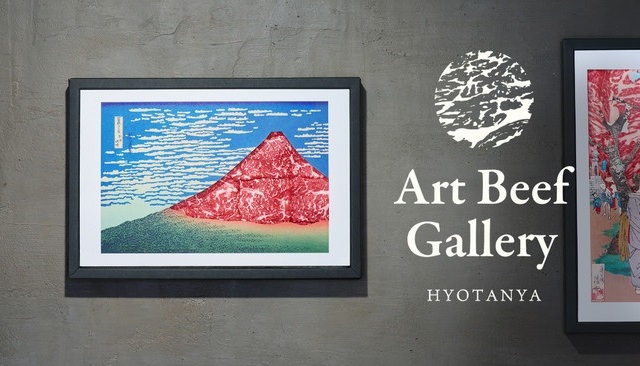
Ukiyo-e meets wagyu in this culturally culinary crossover.
Ukiyo-e paintings became Japan’s most iconic artform not just because of their beautiful aesthetics, but for their woodblock printing production method. By pressing a series of stamps onto the paper for layer of color, ukiyo-e could be made efficiently in large quantities, which in turn let them be sold at prices where you didn’t have to be a member of the aristocracy to own one, thus fostering an appreciation for art among the common people of feudal Japan.
But here comes a brand-new, arguably even more clever way to make ukiyo-e: by using premium wagyu beef!
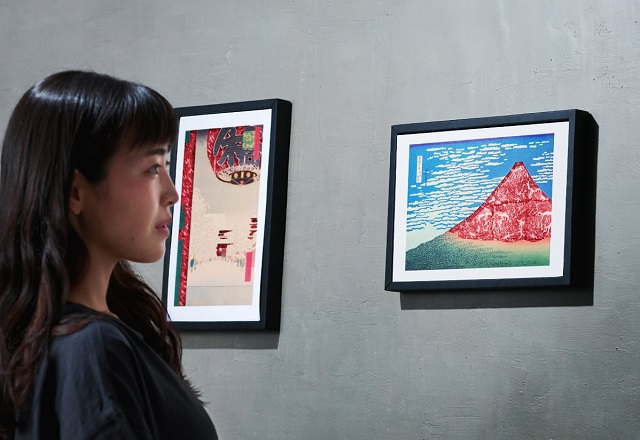
Shiga Prefecture’s Omi beef, along with Kobe and Matsuzaka, is recognized as one of Japan’s three finest wagyu designations. Omi is said to have the longest history of the three, though, and so Japanese gift company Hitotema hit upon the idea of using Omi beef to recreate famous works of traditional Japanese art.
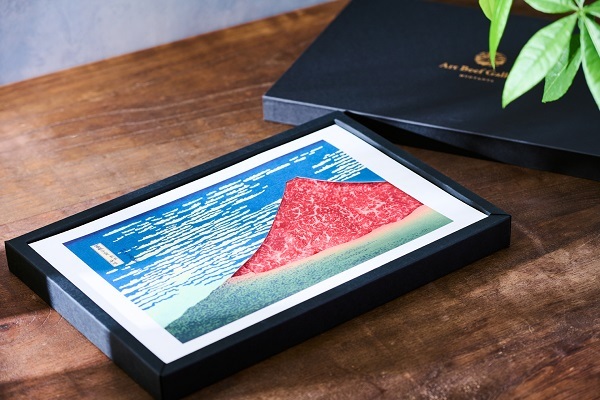
In keeping with Omi beef’s distinctively vivid redness, the first piece in the Art Beef Gallery Collection is Fine Wind, Clear Morning, part of Ukiyo-e master Hokusai’s Thirty-six Views of Mount Fuji series.
▼ Painted sometime between 1830 and 1832, Fine Wind, Clear Morning is also known as South Wind, Clear Sky and simply Red Fuji.
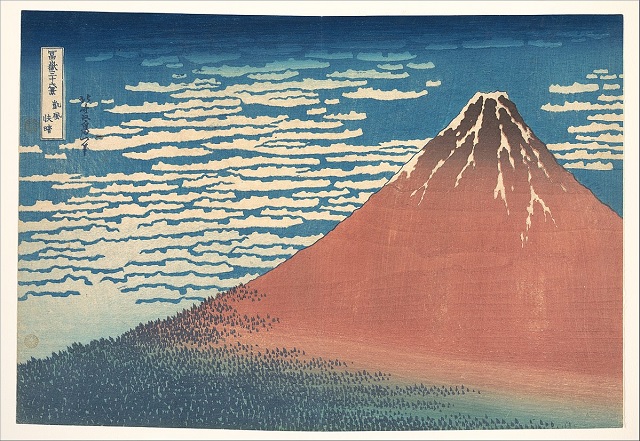
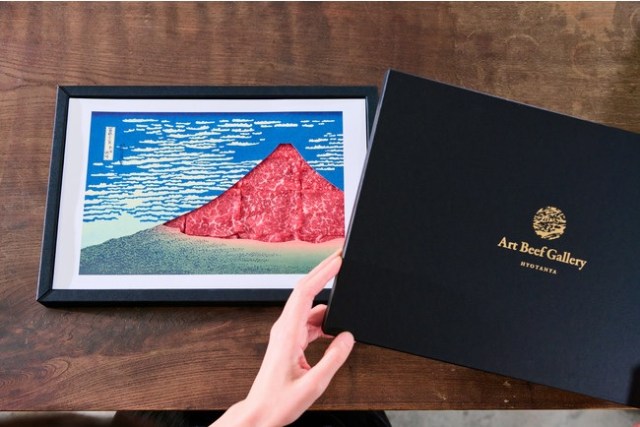
However, no matter how much foodies may contend that “the first bite is with the eyes,” the most important bite is with the teeth, and thankfully this wagyu ukiyo-e is meant to be eaten!

Removing the top frame gives you access to 700 grams (24.7 ounces) of A5-grade Omi beef, carefully selected by the chefs of Hyotanya, a renowned beef restaurant in the Shiga town of Omi Hachima.
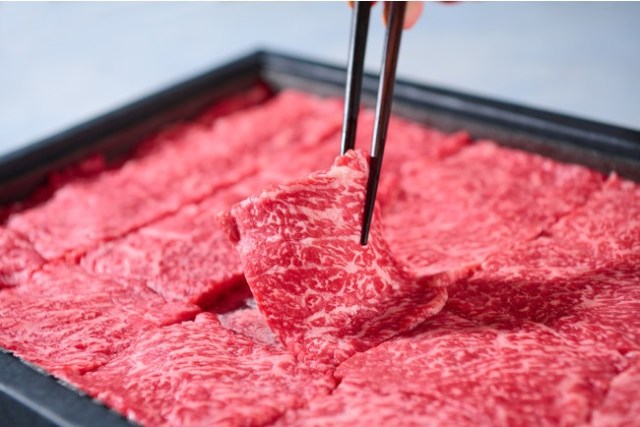
Fine Wind, Clear Morning is only the first ukiyo-e beef offering, though. In the near future it’ll be joined by a meaty interpretation of the work of another ukiyo-e legend, Hiroshige.
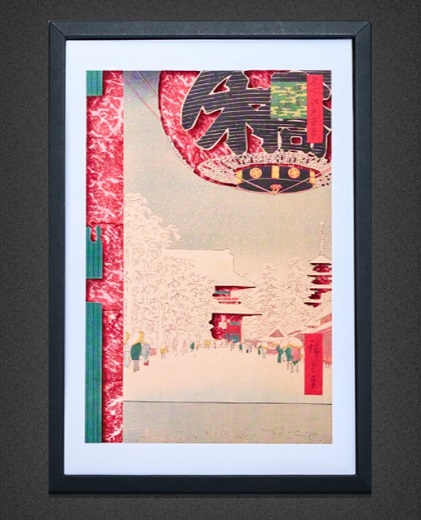
The muse here is Hiroshige’s Asakusa Kinryuzan Temple, as it appeared in the 1850s when he was painting his One Hundred Famous Views of Edo.

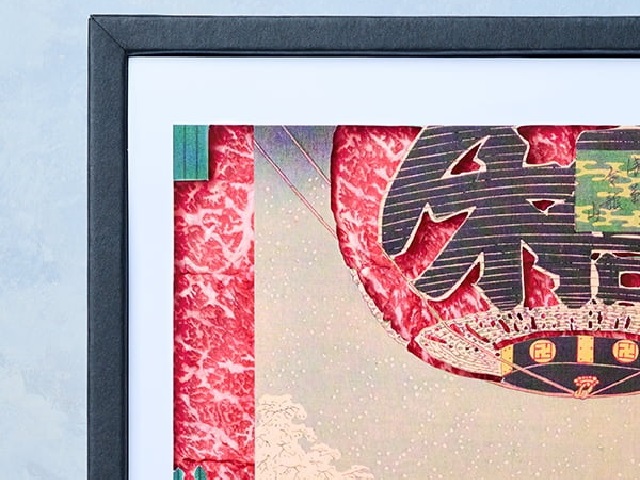
Finally, there will be an Omi beef version of Kobayashi Kiyochika’s Cherry Blossoms on the Embankments of Sumida in Tokyo.
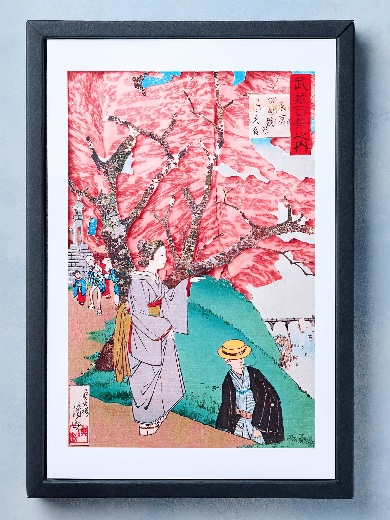
▼ A more heavily marbled cut of beef than in the others is used, in order to give the cherry blossoms a pinkish color.
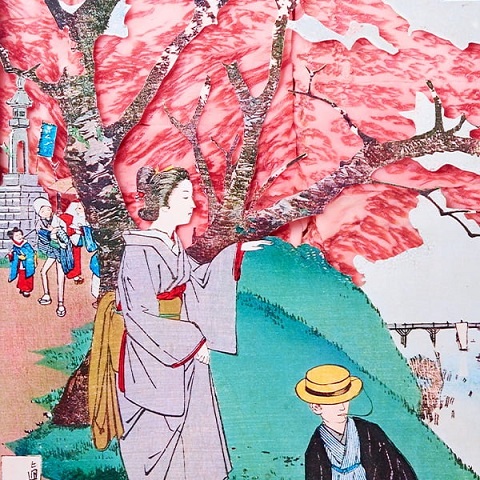
▼ The frame is sturdy enough that the designers say it can be used for decorative purposes (as a photo frame, for example) after you’ve eaten the meat.
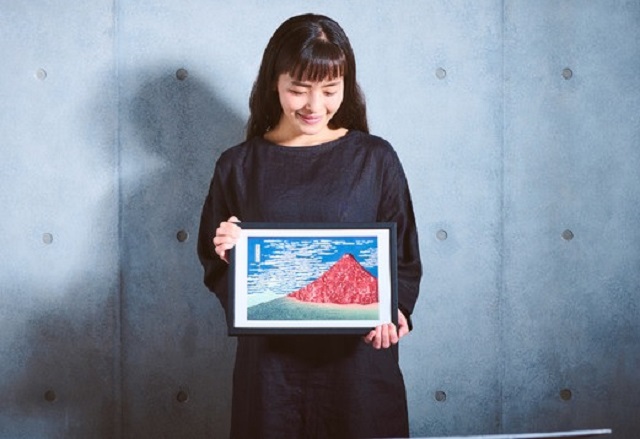
Orders for the Fine Wind, Clear Morning set can be placed online here, priced at 13,000 yen (US$125).
Source: PR Times via Japaaan, Art Beef Gallery
Top image: PR Times
Insert images: PR Times, Art Beef Gallery, Chiriri
● Want to hear about SoraNews24’s latest articles as soon as they’re published? Follow us on Facebook and Twitter!

No hay comentarios:
Publicar un comentario